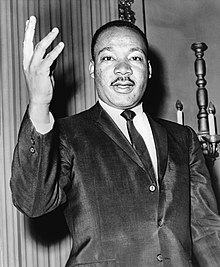With my focus being on quality in Early Childhood
programs, I found three diverse, yet similar jobs and or roles that interested
me.
·
Grantee Specialist with the Office of Head
Start (Linkedin)
I chose this job because it entails
working with programs, throughout a Head Start region, with deficiencies, found
through the monitoring process, which can hinder that program from having
quality. The Grantee Specialist is
deployed by Head Start to help the program fix the problem.
Skills needed for this job are: A
minimum of a B.A. or B.S. Degree required, with a preference for a Master's
degree, in a field related to Program Design and Management. Other related
degrees in Business Management, Accounting, Public or Non-Profit
Administration, and Project Management (with fiscal emphases) are acceptable (Linkedin).
At least 5
years of demonstrated experience in providing technical assistance required,
specifically on issues pertaining to governance, management systems and
administrative issues within Head Start. Knowledge of management and related
issues are a must, and a demonstrated ability to apply such knowledge (Linkedin) .
Experience in a
leadership position within a Head Start program (Executive Director, Assistant
Director, Program Director, preferred (Linkedin)
Experience
working in management, PDM, Fiscal management preferred (Linkedin)
Experience
providing training at State, Regional or National Meetings and technical
assistance to individual organizations preferred (Linkedin)
In-depth
knowledge of and experience with Microsoft Office (Word, Excel and PowerPoint)
required (Linkedin)
Excellent
verbal and written communication skills required (Linkedin) .
Possess the
ability to work independently as well as with a team (Linkedin) .
Excellent
interpersonal skills and ability to work with a variety of groups including
governing bodies, staff, community leaders, and Head Start policy groups
(policy councils and committees) (Linkedin)
Ability to
complete detailed paperwork in timely manner (Linkedin)
·
Compliance Manager with the National
Association for the Education of Young Children (NAEYC)
I
chose this job because it entails ensuring that programs which have achieved
accreditation, maintain their level of excellence and quality.
The
skills required for this job are: Minimum
of a BA degree in Early Childhood, Human Development, Human Services, Business
Administration or Non-profit Management (NAEYC).
.
Master's
degree in related field highly valued. A minimum of five years' experience with
child care quality improvement programs, and/or accreditation systems, is
required. The candidate must have excellent communications skills, both verbal
and written, including the ability to create high-quality training documents
and the ability to write clear and concise documents for internal and external
audiences (NAEYC).
Have excellent interpersonal skills, including
the ability to show discretion and judgment in communication of sensitive
and/or confidential information. Be able to create and monitor procedures and
organizational chain of communications. Demonstrate information technology
skills and understand how to utilize technology to manage information. The
candidate must be able to manage competing demands and shifting timelines and
priorities in a team-based, collaborative
environment (NAEYC).
·
Franklin Fellow (Careers), in this role I
would be serving as a member for a community of service.
I
chose this role because I could garner attention and support for Early
Childhood and the ramifications of poor quality and it’s corollary to school
readiness. This Fellowship is through
the U.S. Department of State or the U.S. Agency for International Development (Careers).
To
qualify for this Fellowship: If you are
a U.S. citizen and have a minimum of five years of relevant, professional-level
experience, you will have the opportunity to bring fresh thinking and best
practices to the formulation and execution of U.S. foreign and development
policy by working on global issues of vital importance to our
country (Careers).
These
include the environment; counterterrorism; human rights; consular matters;
HIV/AIDS and other trans-national diseases; trade, energy and financial policy;
and many others. Also, you may interact with other government and international
entities, such as the NSC, the Departments of Defense and Homeland Security,
other Executive Branch departments and the United Nations (Careers).
You will return
from your fellowship year with a much-enhanced knowledge of foreign and
development policy issues and government operations and culture (Careers).
The United
States spends more money on prisons and their occupants than on Early
Childhood, schools and their occupants (CPBN).
We are building from the roof, down rather than from the foundation, up. If we do the latter, then the former will
have less prominence.
References:
Retrieved from http://careers.state.gov/ff
Education vs. Incarceration: The Real Cost of Failing Our Kids retrieved from http://www.cpbn.org/pressrelease/education-vs-incarceration-real-cost-failing-our-kids
My url is http://stephaniehiggins.blogspot.com

